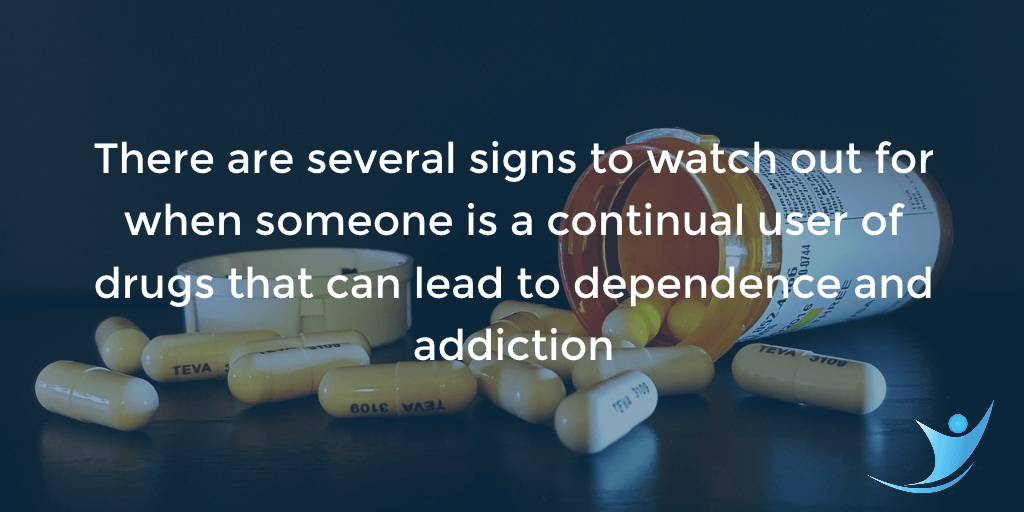Besides the obvious signs of red eyes, drowsiness and erratic behavior, you may be surprised to find out that there many other warning signs to look for if you suspect someone is using drugs.For many people, it hits them like a ton of bricks; their spouse, child or even their parent has a drug problem. How could have this happened under their nose and they not know?Although you may have had your suspicions, you probably weren’t 100 percent sure that your loved one was struggling with drug addiction.
Keep in mind that not every case of drug use results in a full-blown addiction. Addiction is very complicated. There are several signs to watch out for when someone is a continual user of drugs that can lead to dependence and addiction.
Thankfully, there are different ways to treat this. The most common form of treatment is a support group or a professional drug rehab.
You might be here looking for a loved one, or maybe you are even trying to figure out whether you have a drug problem.
Either way, read on for some of the less common symptoms of drug abuse and know that knowledge is the first step toward recovery. Some or most of these signs individually might not really be a cause for concern. But if there are two or even three or more... then you can start taking it seriously.
Signs & Symptoms of Drug Abuse
Loss of Interest In Most Things
It’s not uncommon to have an occasional case of the blues and want to stay at home in bed. But when someone who was normally active stops pursuing their favourite hobbies, it could be a warning sign.
It’s not that these interests are no longer important to them, but they now turn they attention towards feeding their drug use.
Physical Changes
In addition to losing interest in things they once enjoyed doing, there are also physical signs of drug abuse. For example, bloodshot eyes, a puffy face, sniffling and dilated pupils are all
tell-tale signs of possible drug use.
Someone using drugs will go to great lengths to hide these signs and symptoms from others.
Changes in Personality
Someone who is using drugs may become suspicious or paranoid. You might notice that they lock themselves in their room for hours on end, something they never did before. They might even accuse you of not trusting them.
Signs of Drug Use in Spouse
Oftentimes, people who are using drugs are totally unaware of how obvious their dependency is or they go above and beyond trying to disguise their addiction.
The burden of discovering
drug use signs in spouses usually lies on the shoulders of their loved ones — specifically partners and spouses.
Sadly, a drug abuse problem
may go unnoticed for a long time before you start to sense that something is not right. And even after you suspect drug use, you may still be shocked to find out that your spouse is doing drugs.
How could this person have lived under the same roof and you not know now what was going on?
Knowing what to look for is the first step in the recovery process. The tell-tale signs of how to identify a drug addict are as follows:
- Drastic changes in appetite and weight. Some types of drugs promote weight gain whereas others totally strip away the user's appetite.
- Change in sleep patterns. Drugs and alcohol can cause serious sleep disturbances such as frequent waking in the middle of the night or insomnia.
- Lack of Hygiene. As the drug addiction worsens, users often stop worrying about their physical appearance. They may stop showering, combing their hair and brushing their teeth.
In addition to the
physical changes, drug addiction also results in a slew of behavioural changes like emotional outbursts, mood swings, insomnia and emotionally withdrawals.
How do you really know if someone is addicted to drugs?
The symptoms of drug use can be hard to spot even when we know someone like the back of our hand; some people are very good at hiding their problems.
Keep this list in mind and ask yourself questions when you're around the person you suspect has an addiction. Has their personality changed? Do they seem like a totally different person? It's not uncommon for someone who is abusing drug is have rapid mood swings.
Knowing how to identify a drug addict is just the first step; if you're worried that you or someone you love is addicted to drugs, seek professional help.
It costs
nothing to call a rehab facility and ask questions. You should also turn to family and friends who you know will be understanding and willing to help.
Whatever route you choose, understand that drug addiction is a serious problem that isn't about fault or blame but recovery.
Acceptance and awareness put everyone involved closer toward a sober, brighter future.






